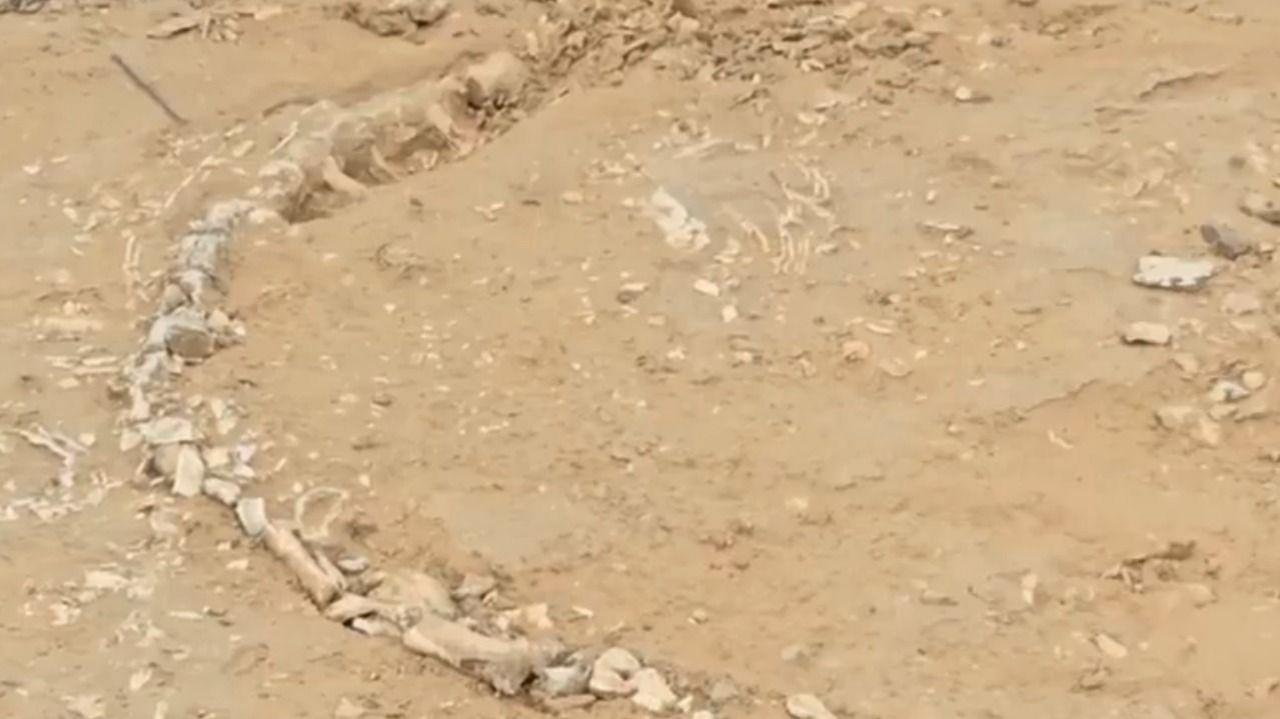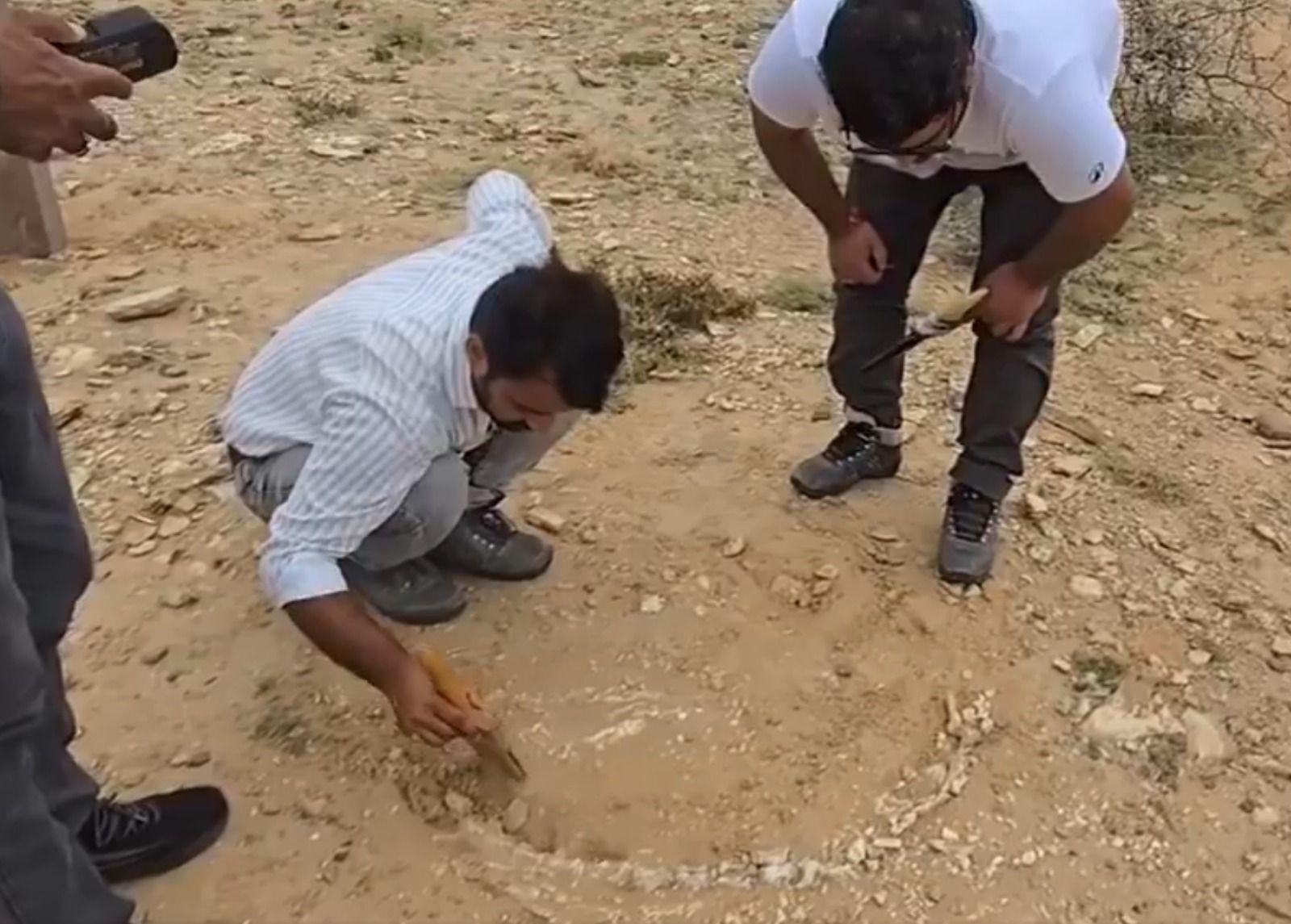Researchers find rare Jurassic-era fossil in Indian village

The remains of a crocodile-like species were first spotted by some villagers last week
- Published
Researchers in India have discovered the fossilised remains of a rare crocodile-like species from the Jurassic era in the western state of Rajasthan.
The fossil, known as a phytosaur, measures between 1.5 to two metres and is likely to be more than 200 million years old, researchers say.
It was unearthed at Megha village in Jaisalmer district by senior hydrogeologist Dr Narayandas Inkhiya and his team, who work for the state's water department.
Mr Inkhiya told the BBC that the site could hold "many more hidden fossils" that could provide vital and fascinating clues on the history of evolution.
"It also opens up the area as an important spot for fossil tourism," he added.
The phytosaur was a semi-aquatic animal, one that lived in the river and also on land, said geoscientist CP Rajendran. "It later evolved into the crocodiles that you find now."
The remains were first spotted by some villagers last week when they were digging up a lake in the area.
The men noticed some formations on the ground which resembled a large skeletal structure and informed authorities about it.

The area surrounding the site of the discovery could hold many more hidden fossils, researchers say
When the site was dug up, researchers also found what looked like a fossilised egg, which could have belonged to the reptile.
"The fossil indicates a medium-sized phytosaur that probably lived near a river here millions of years ago and ate fish to survive," VS Parihar, a senior palaeontologist who is leading the research, told NDTV news channel.
Mr Rajendran said the remains are "probably a rare fossil specimen" because so far, only a few parts of the phytosaur have been found in other parts of the world.
The discoveries, although significant, are not surprising as the area is believed to have had a river on one side and a sea on the other.
Jaisalmer is part of a geological formation called the Lathi formation where dinosaurs thrived in the Jurassic era, Mr Inkhiya said.
In 2023, Mr Inkhiya had found, external a fossilised egg believed to belong to a dinosaur in Jaisalmer.
In 2018, scientists from the Geological Survey of India scientists had unearthed, external fossils from what turned out to be the oldest herbivorous dinosaur ever found here.